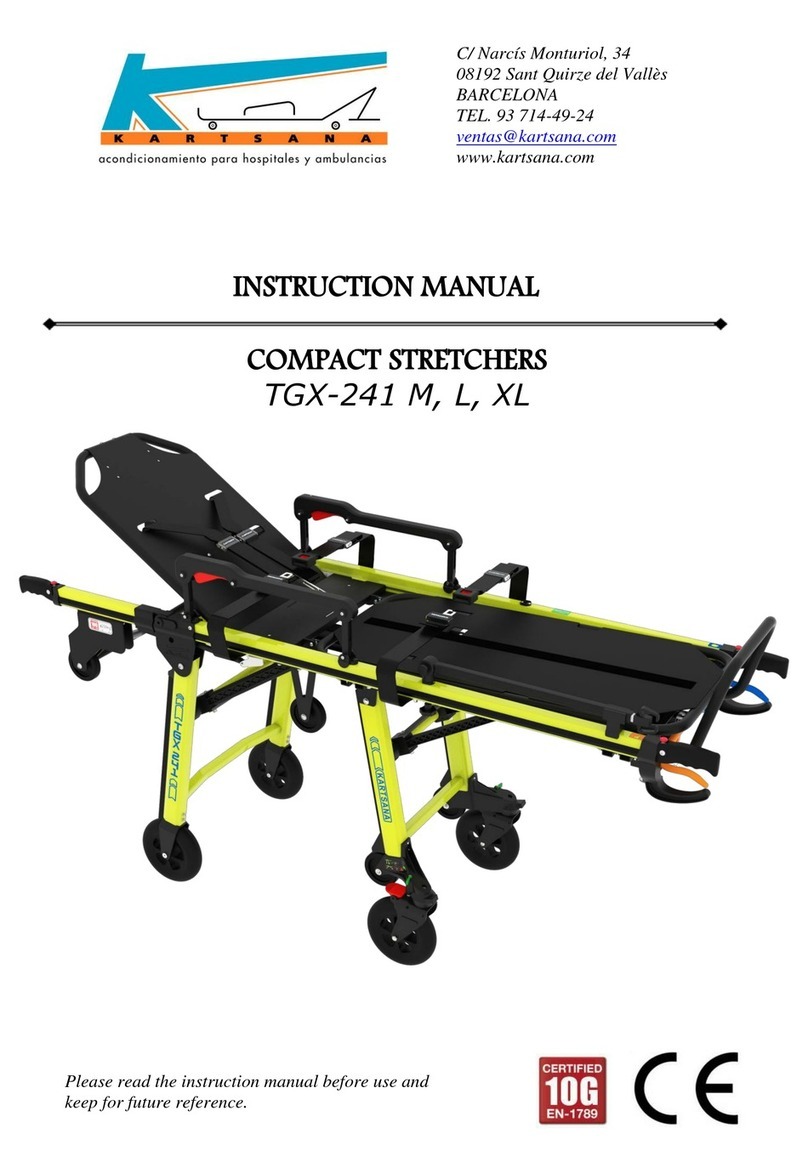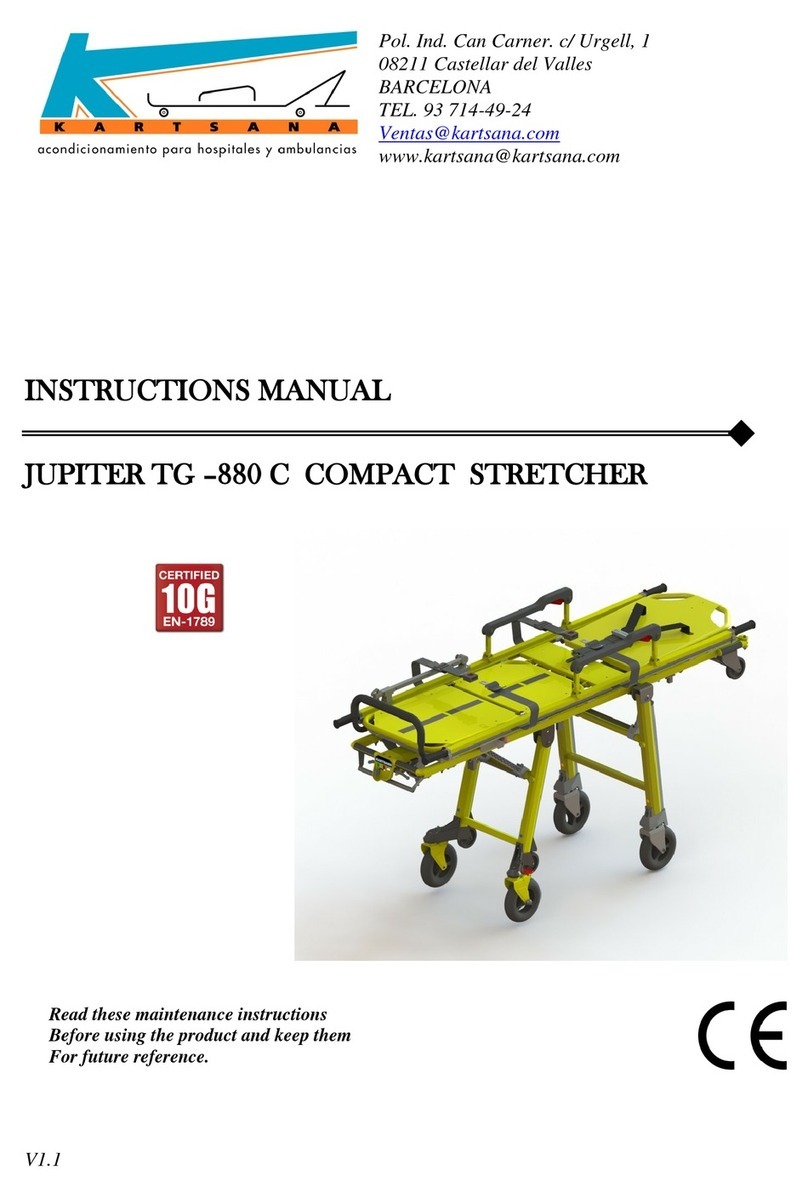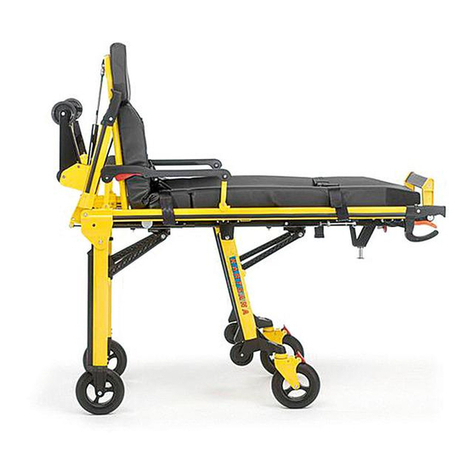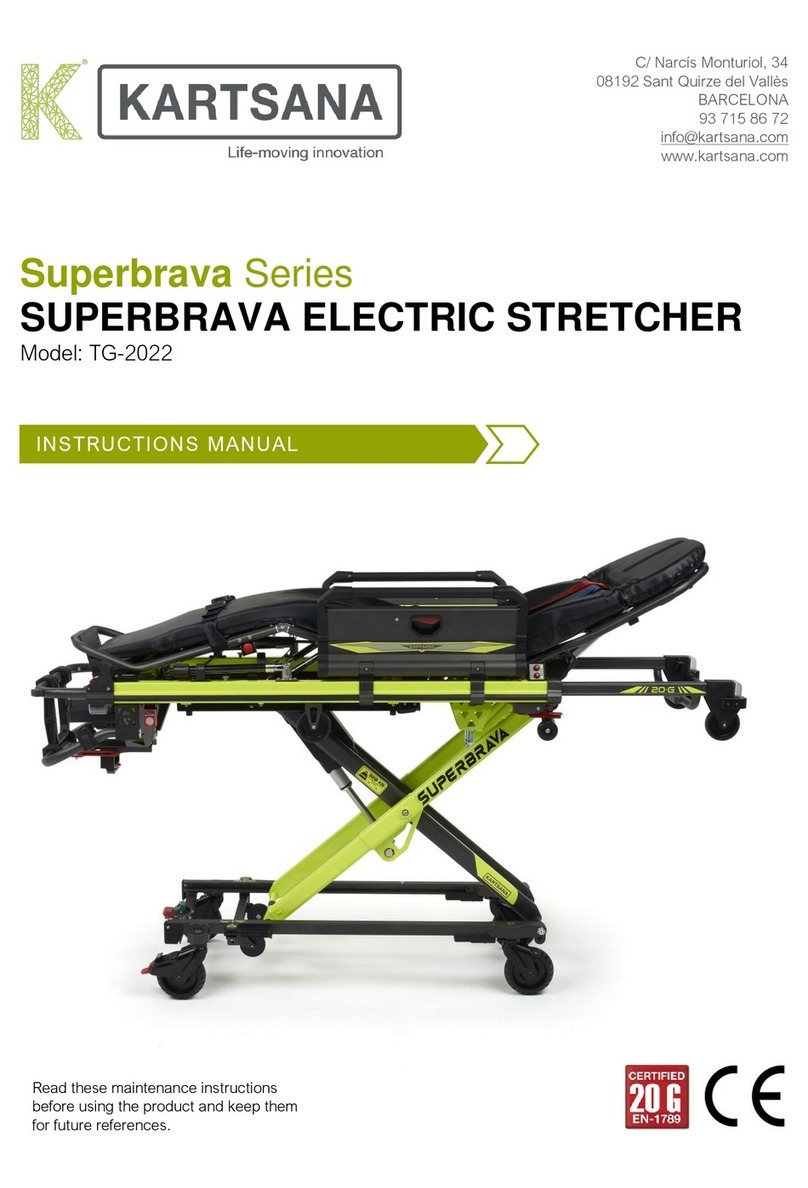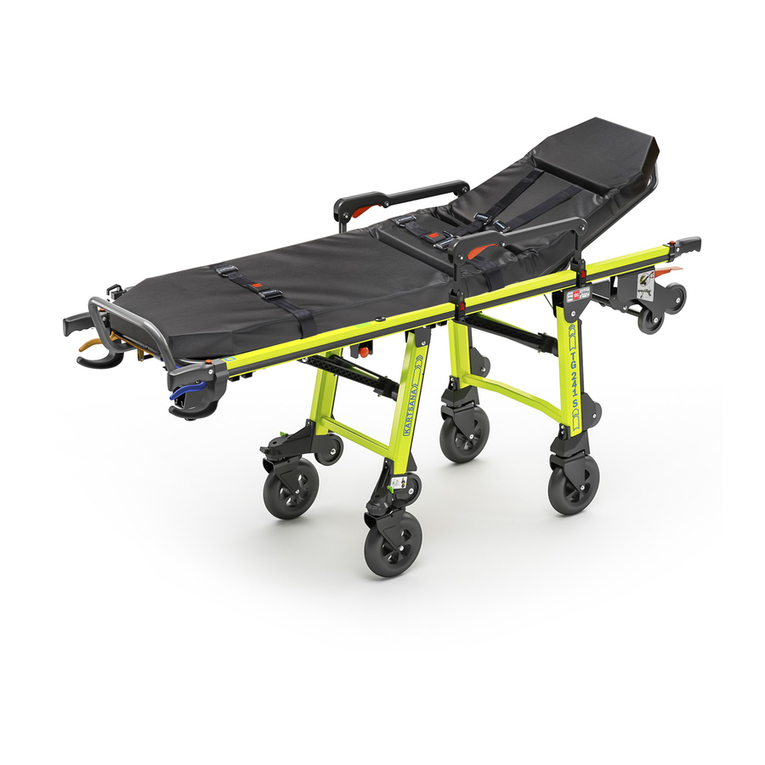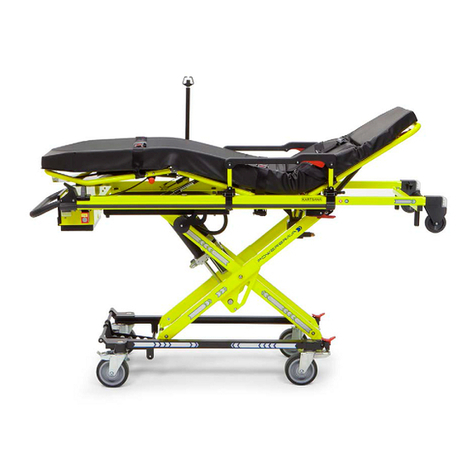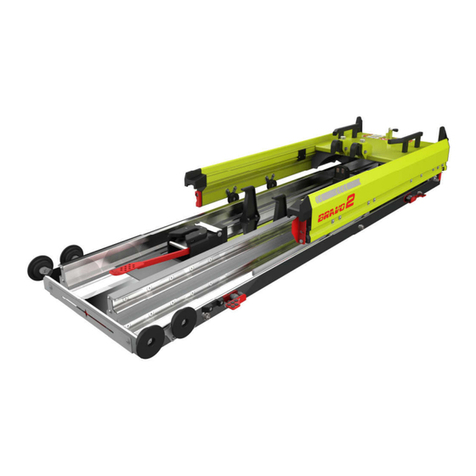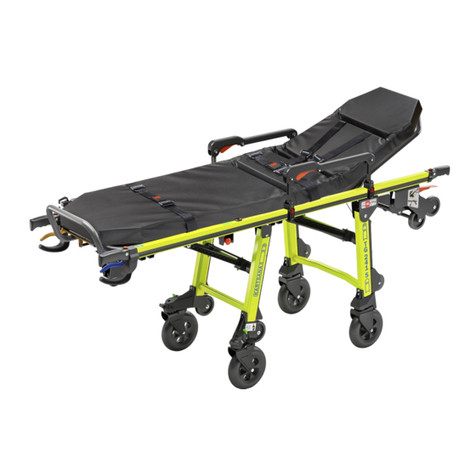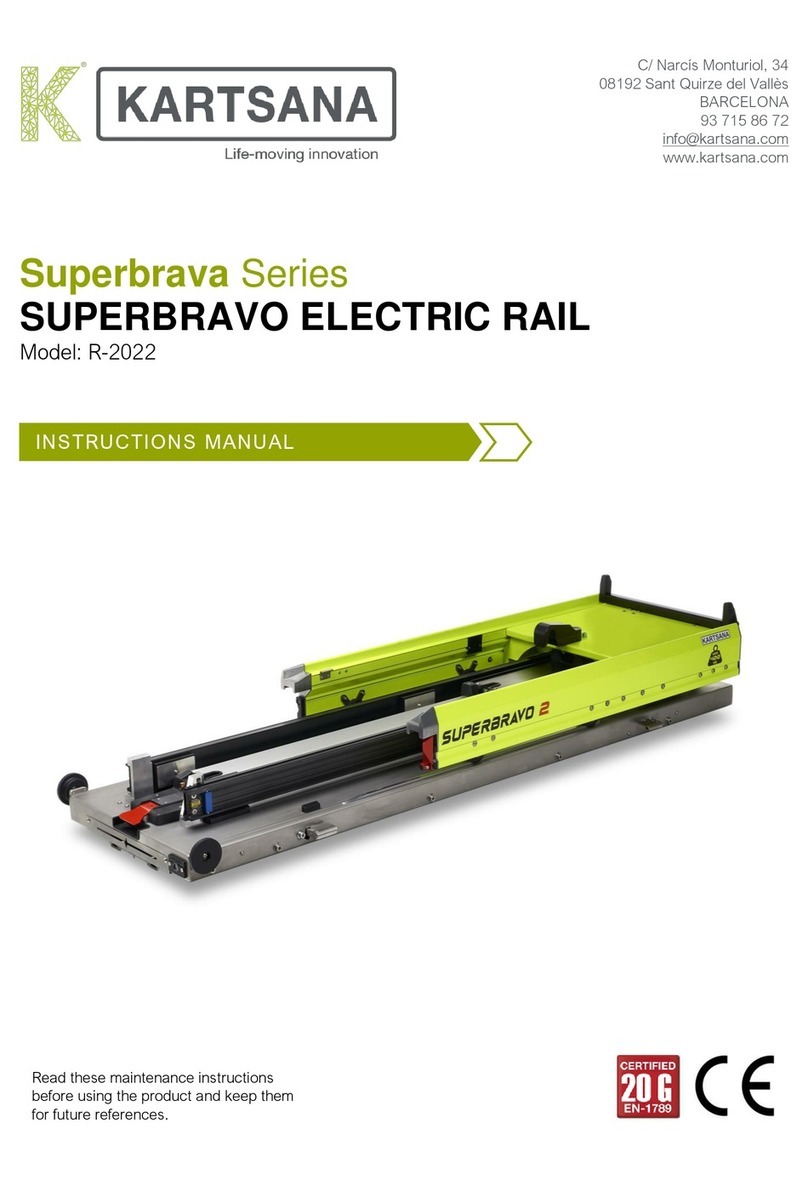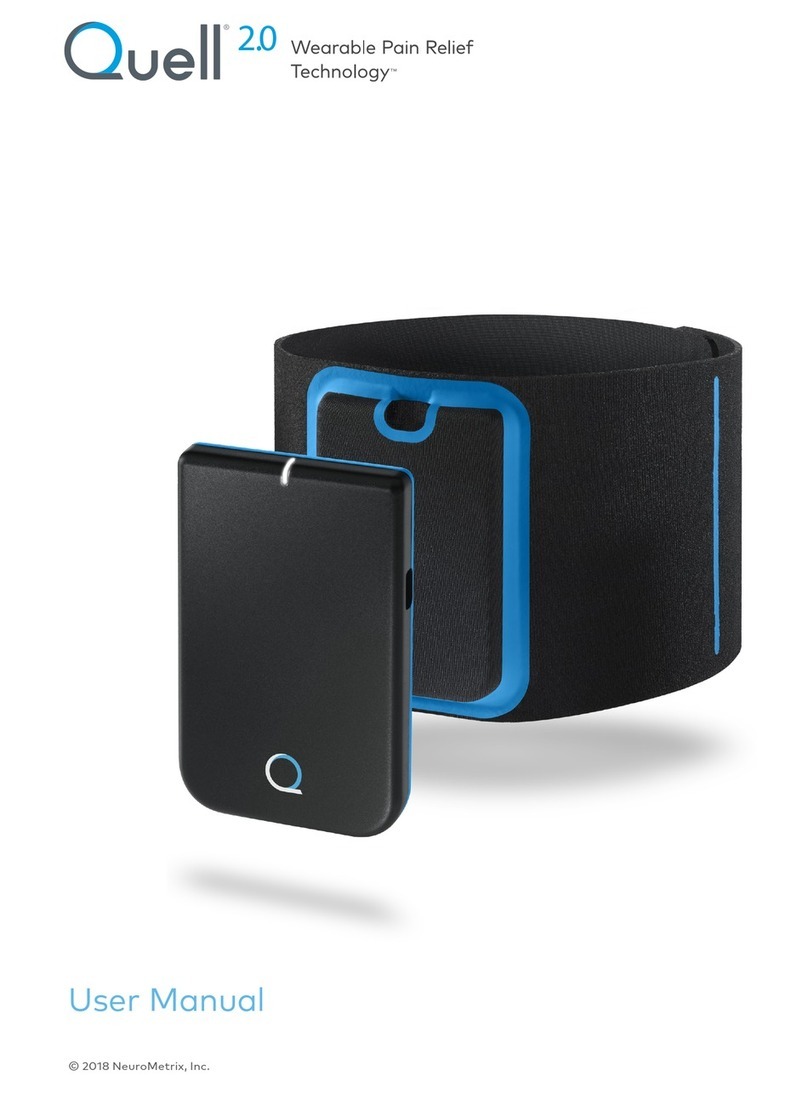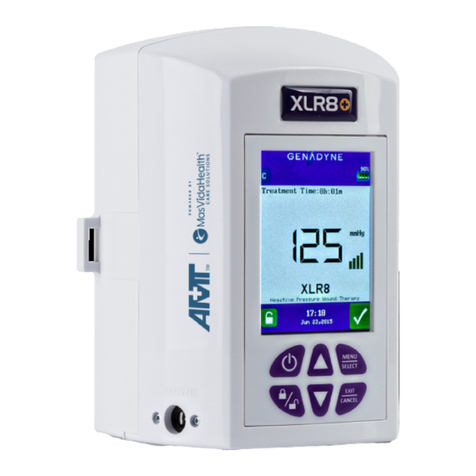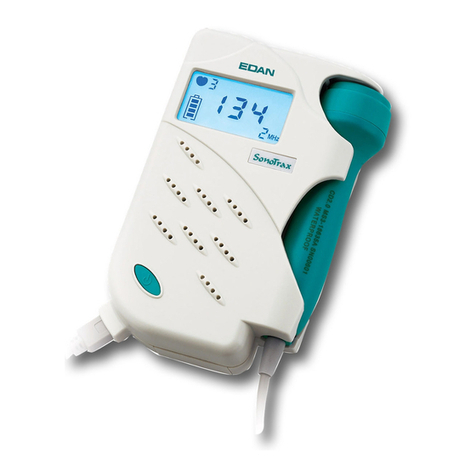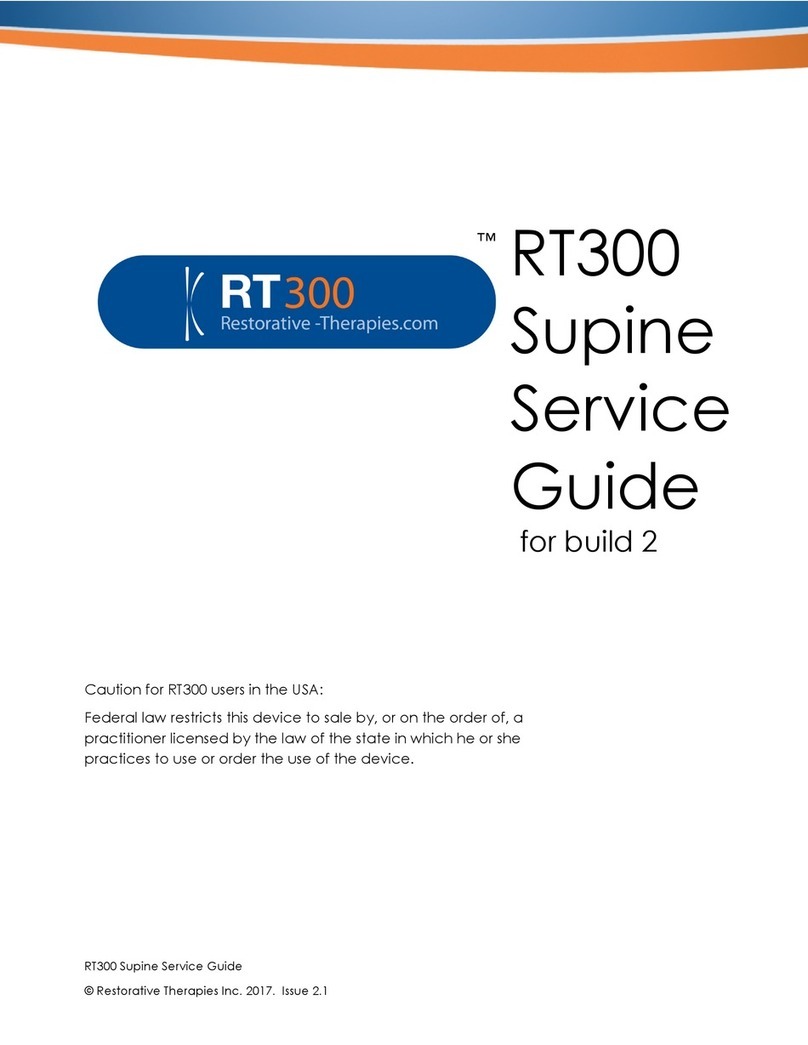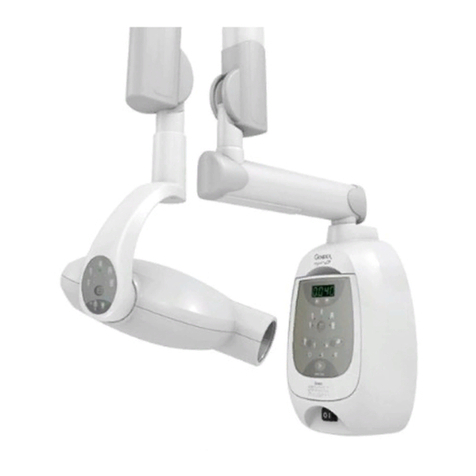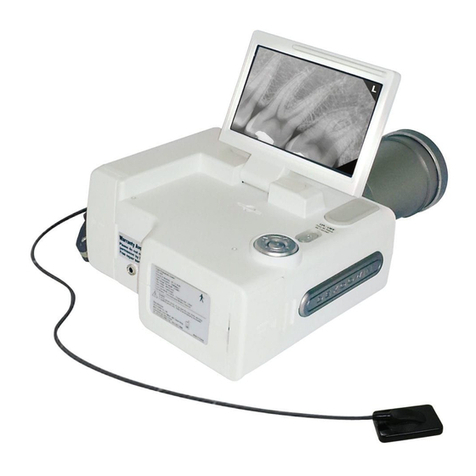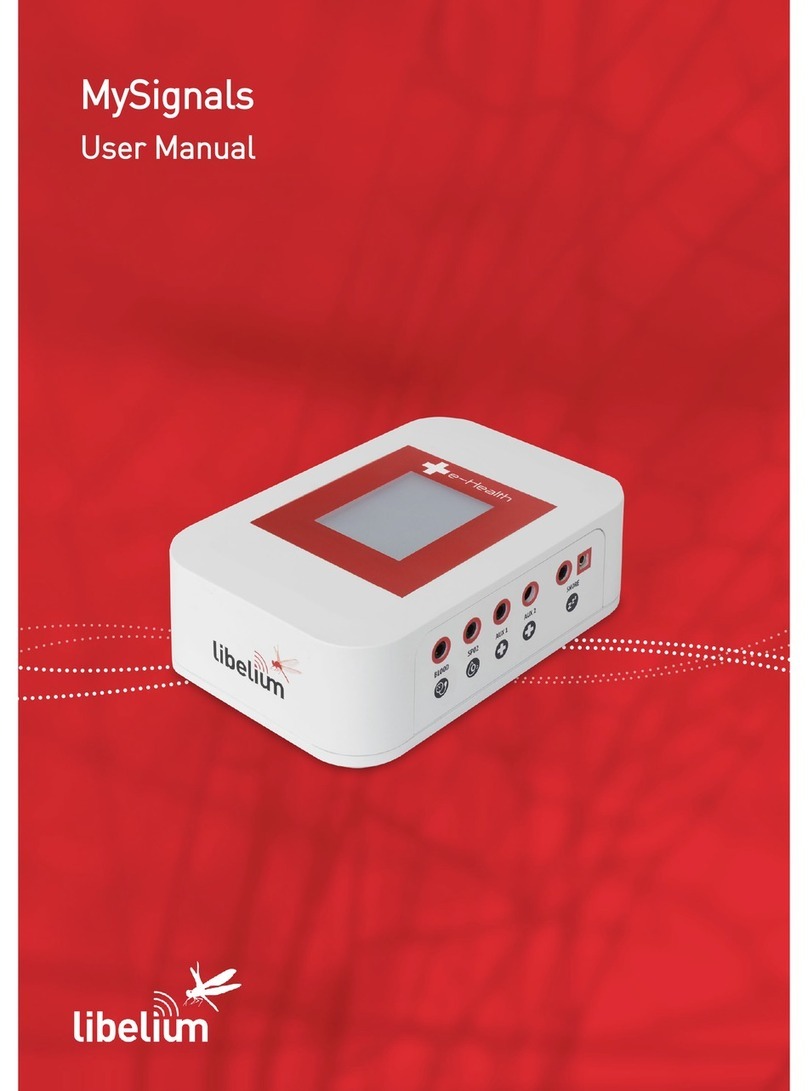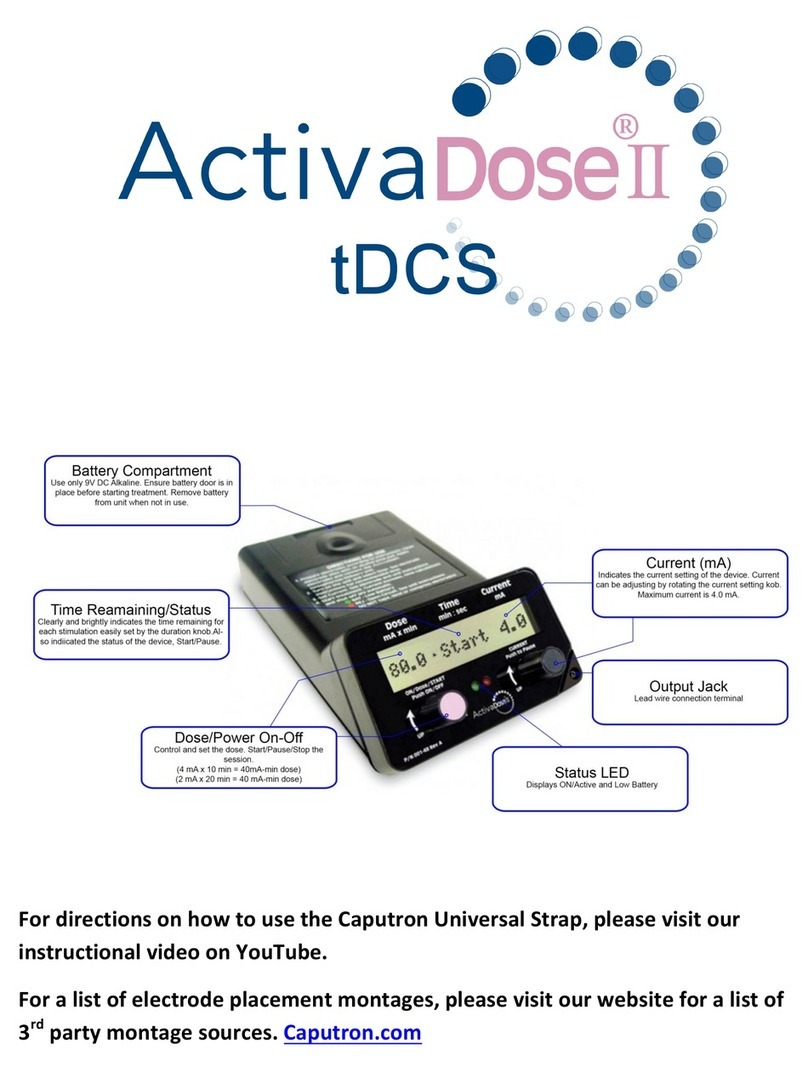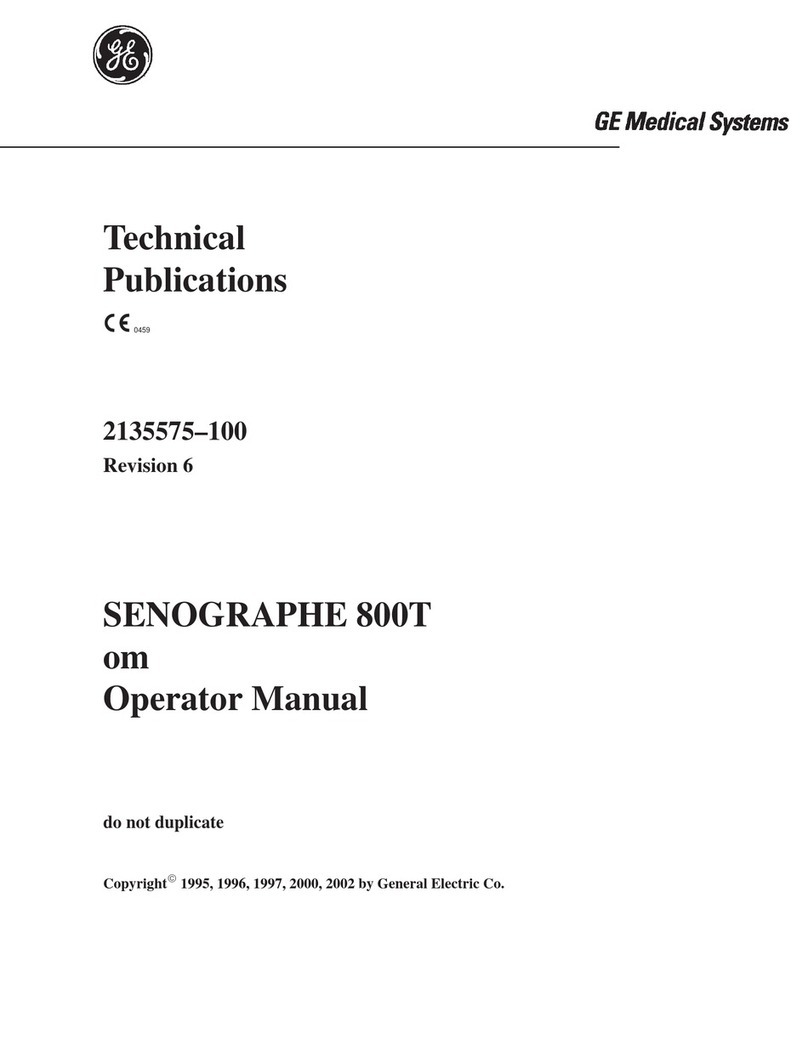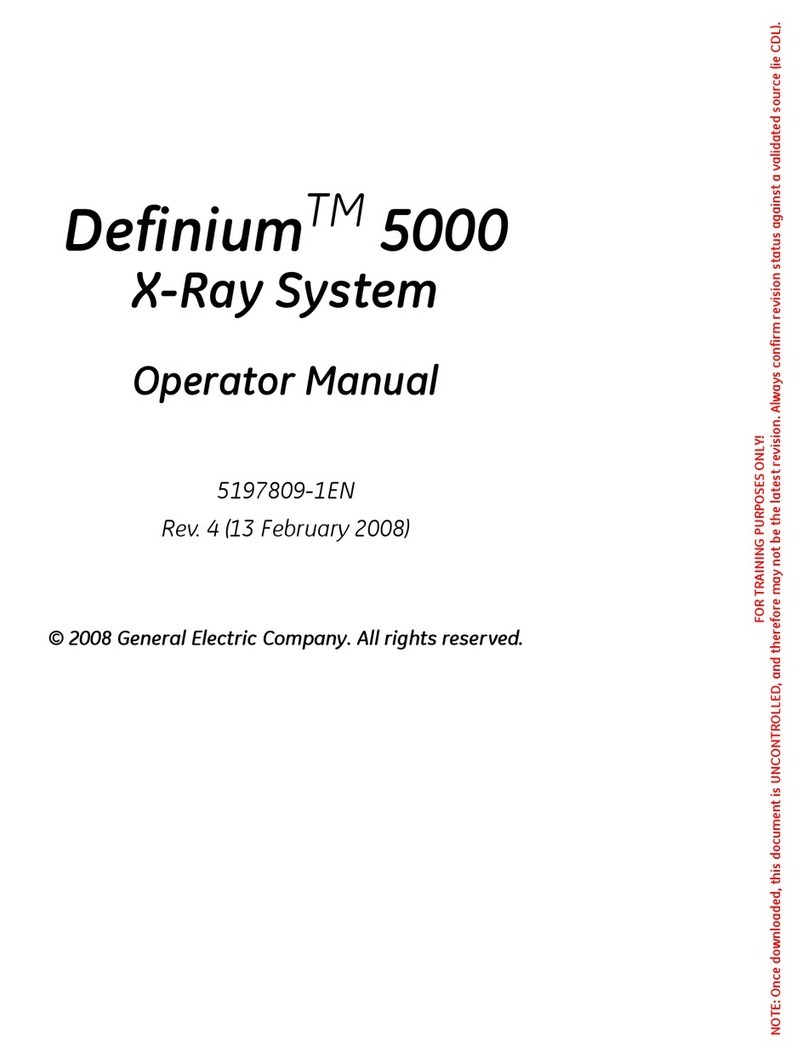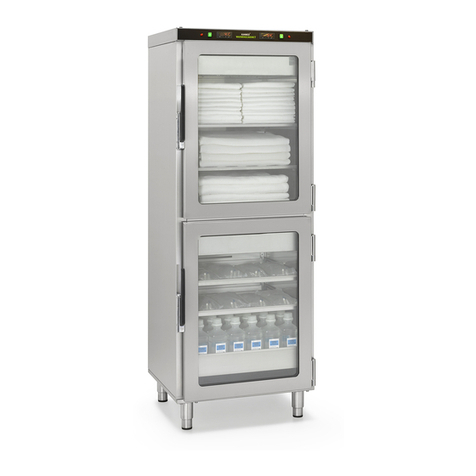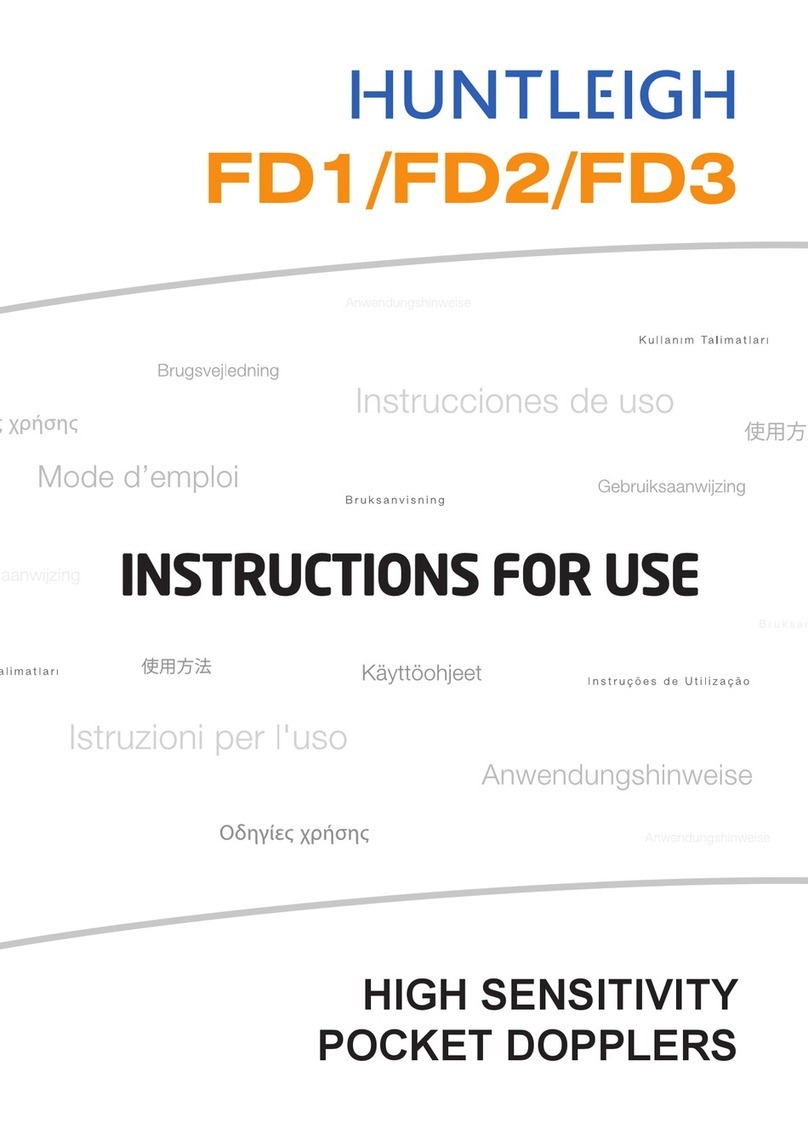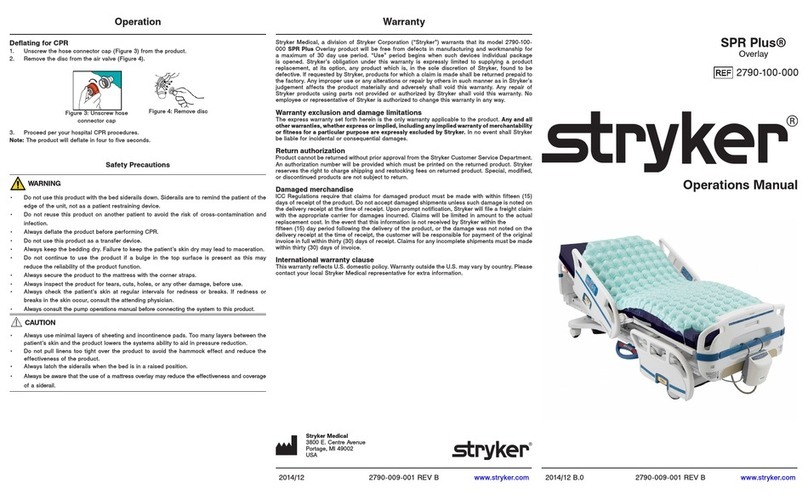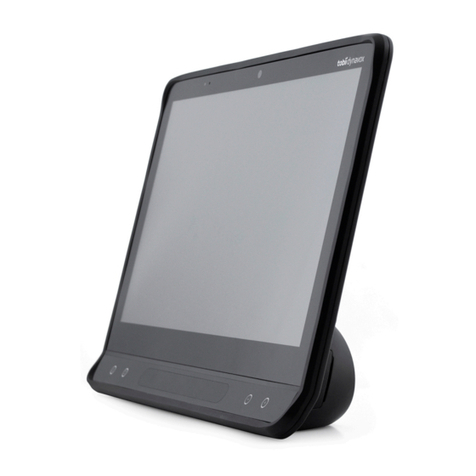
OPERATION AND HANDLING OF THE
TGE-241 SERIES
4
Rev.4
20-12-17
1.4.- Attention
Through this sign, information is furnished on important safety measures for the correct
use of the stretcher, in order to prevent accidents. The warnings alerts the reader about
a situation which, if not avoided, could result in death or serious injury.The cautions
alerts the reader of a potentially hazardous situation which, if not avoided, may result in
minor or moderate injury to the user or patient or damage to the equipment or other
property. This includes special care necessary for the safe and effective use of the
device and the care necessary to avoid damage to a device that may occur as a result of
use or misuse.
1.5.- Summary of safety precautions
Carefully read and strictly follow the warnings and cautions listed on these pages.
Service only by qualified personnel.
WARNINGS:
- Improper usage of the stretcher can cause injury to the patient or operator. Operate the stretcher only as described in this
manual.
- Do not modify the stretcher or any components of the stretcher. Modifying the product can cause unpredictable operation resulting
in injury to the patient or operator. Modifying the product also voids its warranty.
- Any emergency vehicle to be used with this stretcher must have the compatible fixation system installed.
- Have the vehicle safety rail compatible installed by a certified mechanic. Improper rail installation can cause injury to the patient or
operator and/or damage to the stretcher. Verify that the stretcher legs lock into the load position before without contact with the
fender of the vehicle. Failure to properly lock the stretcher height into position can cause injury to the patient or operator and/or
damage to the stretcher
- Practice changing height positions and loading the stretcher until operation of the product is fully understood. Improper use can
cause injury.
-Do not allow untrained assistants to assist in the operation of the stretcher. Untrained technicians/assistants can cause injury to
the patient or themselves.
- Grasping the stretcher improperly can cause injury. Keep hands, fingers and feet away from moving parts. To avoid injury, use
extreme caution when placing your hands and feet near the base tubes while raising and lowering the stretcher.
- Always use all restraint straps to secure the patient on the stretcher. An unrestrained patient may fall from the stretcher and be
injured.
- Never leave a patient unattended on the stretcher or injury could result. Hold the stretcher securely while a patient is on the
product.
- Side rails are not intended to serve as a patient restraint device.
- High obstacles such as curbing, steps or rough terrain can cause the stretcher to tip, possibly causing injury to the patient or
operator.
- TGE-241 series is designed to be compatible with Kartsana models R-419 / R-450 -S / R-800 and R-900, and is operator
responsibility that these products work together.
- Two operators must be present when the stretcher is occupied.
- Operators must be able to lift the total weight of the patient, stretcher and any items on the stretcher.
- Never install or use a wheel lock on a stretcher with excessively worn wheels. Installing or using a wheel lock on a wheel with less
than a 200mm diameter could compromise the holding ability of the wheel lock, possibly resulting in injury to the patient or
operator and/or damage to the stretcher or other equipment.
- When cleaning, use any appropriate personal safety equipment (goggles, respirator, etc.) to avoid the risk of inhaling contagion.
- Some cleaning products are corrosive in nature and may cause damage to the product if used improperly. If the products
described above are used to clean Kartsana equipment, measures must be taken to ensure the stretchers are wiped with clean
